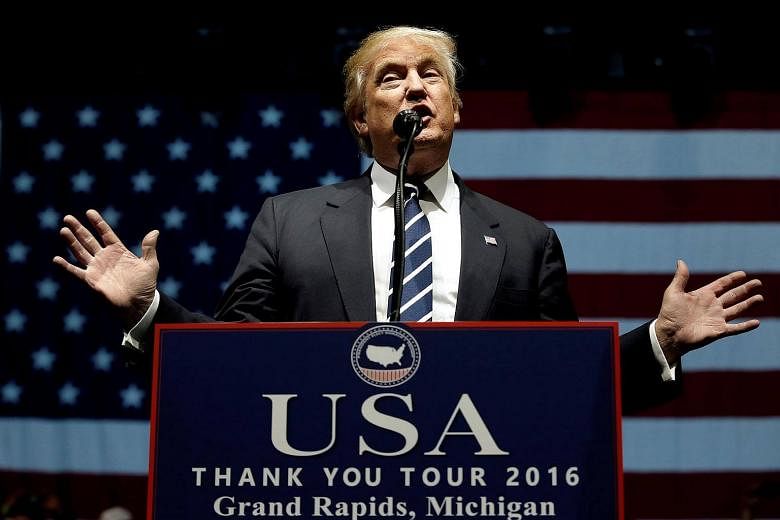WASHINGTON (NEW YORK TIMES) - An extraordinary breach has emerged between President-elect Donald Trump and the national security establishment, with Trump mocking US intelligence assessments that Russia interfered in the election on his behalf, and top Republicans vowing investigations into Kremlin activities.
On Saturday (Dec 10), intelligence officials said it was not until the week after the election that the CIA altered its formal assessment of Russia's activities to conclude that the government of President Vladimir Putin was not just trying to undermine the election, but had also acted to give one candidate an advantage.
Wary of being seen as politicizing their findings, CIA analysts had been reluctant to come to that conclusion in the midst of the election - even as many supporters of Hillary Clinton believed it was obvious, given the leak of emails from her campaign chairman and others.
One intelligence official said there were indications in early October that the Russians had shifted their focus to harm Clinton. The CIA's slowness in shifting its assessment, another official said, was one reason President Barack Obama ordered a full review of "lessons learned" on the operation to influence the election.
But the disclosure of the still-classified findings prompted a blistering attack against the intelligence agencies by Trump, whose transition office said in a statement Friday night that "these are the same people that said Saddam Hussein had weapons of mass destruction," adding that the election was over and that it was time to "move on." Trump has split on the issue with many Republicans on the congressional intelligence committees, who have said they were presented with significant evidence, in closed briefings, of a Russian campaign to meddle in the election.
At this point in a transition, a president-elect is usually delving into intelligence he has never before seen, and learning about CIA and National Security Agency capabilities. But Trump, who has taken intelligence briefings only sporadically, is questioning not only analytic conclusions, but also their underlying facts.
"To have the president-elect of the United States simply reject the fact-based narrative that the intelligence community puts together because it conflicts with his a priori assumptions - wow," said Michael Hayden, who was the director of the NSA and later the CIA under former President George W. Bush.

